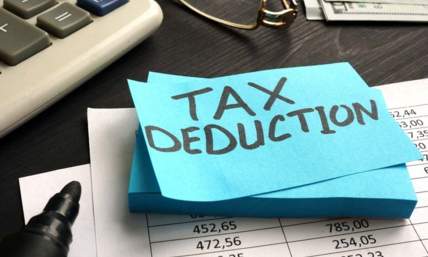Bitcoin Taxes: Top Tax Tips For Bitcoin And Virtual Currency Advocates
In a survey conducted by Statista, 8% of participants reported owning cryptocurrencies. This does not sound like a lot, but according to the US population clock, this equates to roughly 26 million people. Are you part of this 26 million? If so, then there is something of the utmost importance that you need to know about: how to pay taxes on Bitcoin and other cryptocurrencies.
If you are receiving Bitcoin or any other virtual currency for goods and services, then you will need to declare this as taxable income. If you are paying staff in virtual currencies, you will also have a tax obligation. If you are investing in and trading cryptocurrencies, you will also need to know how to report income from this.
If you fail to accurately report cryptocurrency transactions and income, you could be in for some unwelcome attention from the IRS. To avoid this and get super savvy on Bitcoin and taxes, read on!
Also read: How Much Is Social Security tax?
If You Pay Staff in Bitcoin This Needs To Be Reported To The IRS
Are you an employer paying staff in Bitcoin or other cryptocurrencies? If so, you need to report this to the IRS the same as if you were paying your staff via traditional methods. You can report this by filling out and submitting the IRS W-2 form. As per the instruction of the IRS, you will need to convert the virtual currency amount into the correlating dollar amount as of the date of the transaction.
It is very important that you convert the virtual currency amount using the exchange rate to dollars of the day on which the employee was paid. Otherwise, the amount will be inaccurate. If you already hate filling out W-2 forms without this extra work, then check out our W-2 form generator.
Also read: Payroll Tax Vs Income Tax - The Ultimate Guide
If You Are Investing in Cryptocurrencies, This Needs To Be Reported As An Asset And Is Subject To Capital Gains Tax
If you are investing in cryptocurrencies, you will also need to know how to file crypto taxes. Virtual currencies that are held as an investment are subject to capital gains tax. If your cryptocurrency holdings have appreciated in value during the tax year, you will need to report this as a capital gains on your tax return.
On the other hand, if you have experienced a depreciation on your virtual currency assets, you can claim this as a loss against any other capital gains, whether they are from traditional assets or from other cryptocurrencies held.
Also read: What Is FUTA Tax - All You Need To Know
If You Are Trading Cryptos You Will Need to Report Your Gains in One of Two Ways
If you are actively trading cryptocurrencies, there are two types of taxes that may apply. Long term trades that attract a profit are subject to capital gains tax as mentioned above. Gains earned from short term trades, however, may fall into the category of short term capital gains and be taxed by the same rate as your income.
If a virtual currency is held for less than 365 days and then sold, any profit attracted will be deemed as short term capital gains and will be taxed at the same rate as your regular income. Since there are two categories of taxation that crypto trading profits can fall into - capital gains tax and income tax - it is very important that you keep accurate, up to date and detailed records of all your trades.
You will need to record the date on which cryptocurrency was sold and accurately calculate the dollar amount of any gains made. For example, if your gains lie in Bitcoin, you will need to record them for tax purposes as the equivalent dollar amount according to the exchange rate at the time you sold and attracted the gain.
At the end of the year, you will need to go through these records and calculate the amount of profit made that falls into the capital gains tax category (the ones that were from positions held for more than a year) and the income tax category (the ones from positions held for less than a year). Also, make sure that you keep track of any losses that you made, as you can offset these against realized gains.
Also read: Mandatory Deductions From Your Paycheck
If You Are Mining Bitcoin, You Need to Report This as Income
If you are mining Bitcoin or any other virtual currency, you need to know how to pay taxes on Bitcoin received or whichever other cryptocurrencies you are mining. According to the IRS, miners are required to record and report any earnings received from mining. The way to do this is by recording the value of the Bitcoin, or other cryptocurrencies you are mining, at the exact time that you receive it.
You will need to convert this value into dollars using the current exchange rate for when you received the virtual currency mining reward. This can be a little tricky, but it is vitally important to keep accurate records that you can include in your tax return. Also, remember that you can claim any applicable expenses that were incurred to mine the Bitcoin or other cryptocurrencies.
These could include electricity and wear and tear on your hardware.
Congrats! You Are Now Bitcoin Tax Savvy
Nobody enjoys tax time. Especially if you have a bunch of crypto-related earnings to report and don't know how to go about doing it. But guess what. After reading this, you are now pretty clued up about Bitcoin taxes. This means that come tax time, you can be 100% prepared and compliant for a stress-free tax season!
If you are an employer, you are now also aware of your reporting obligation to the IRS and how to go about fulfilling it. If you are wondering how to record your employee's virtual currency earnings, then check out our paystub creator today!















